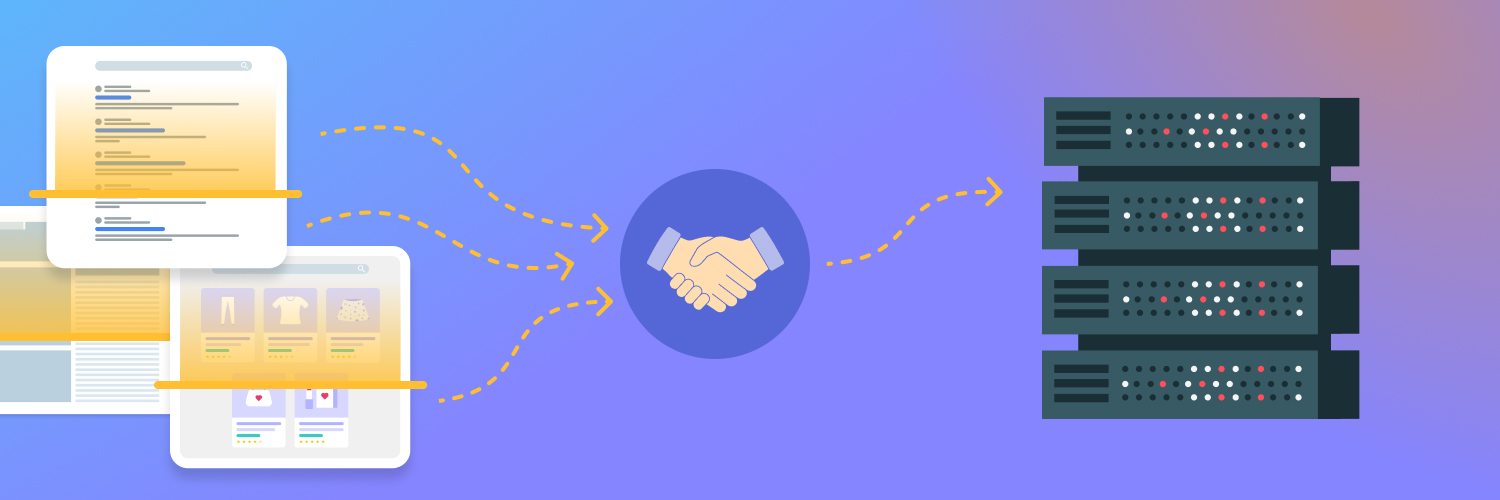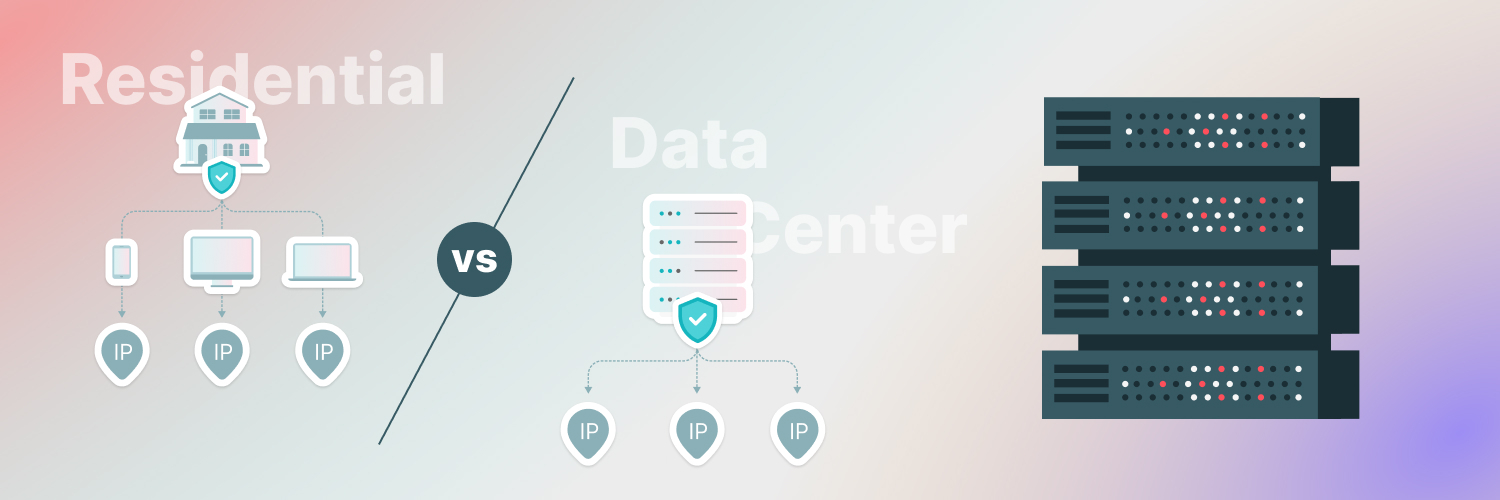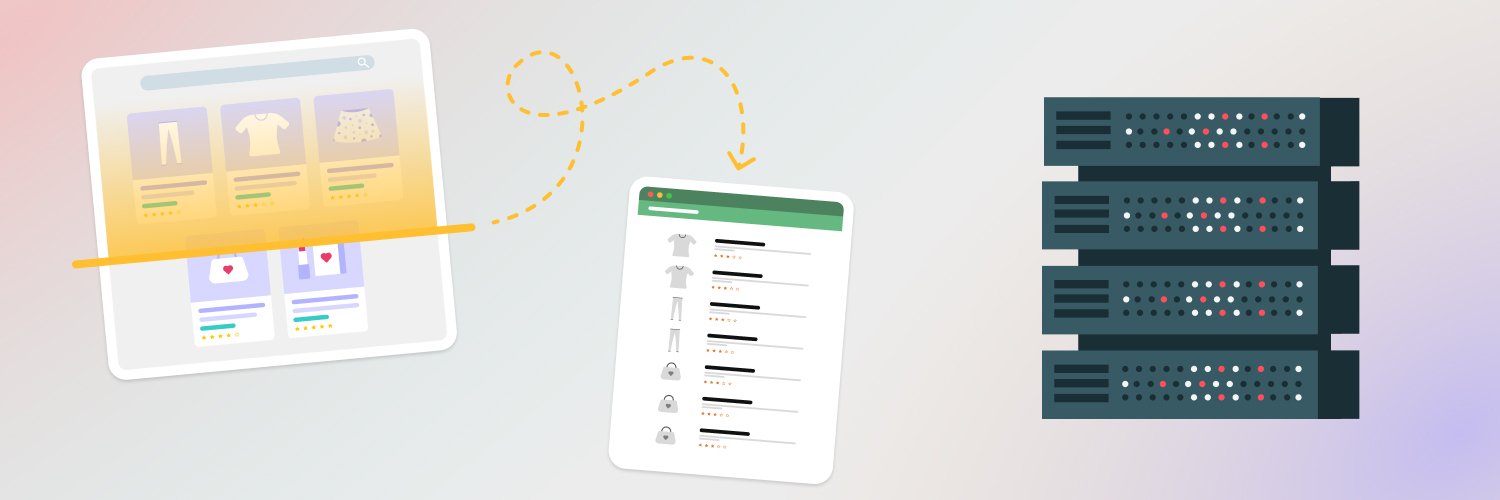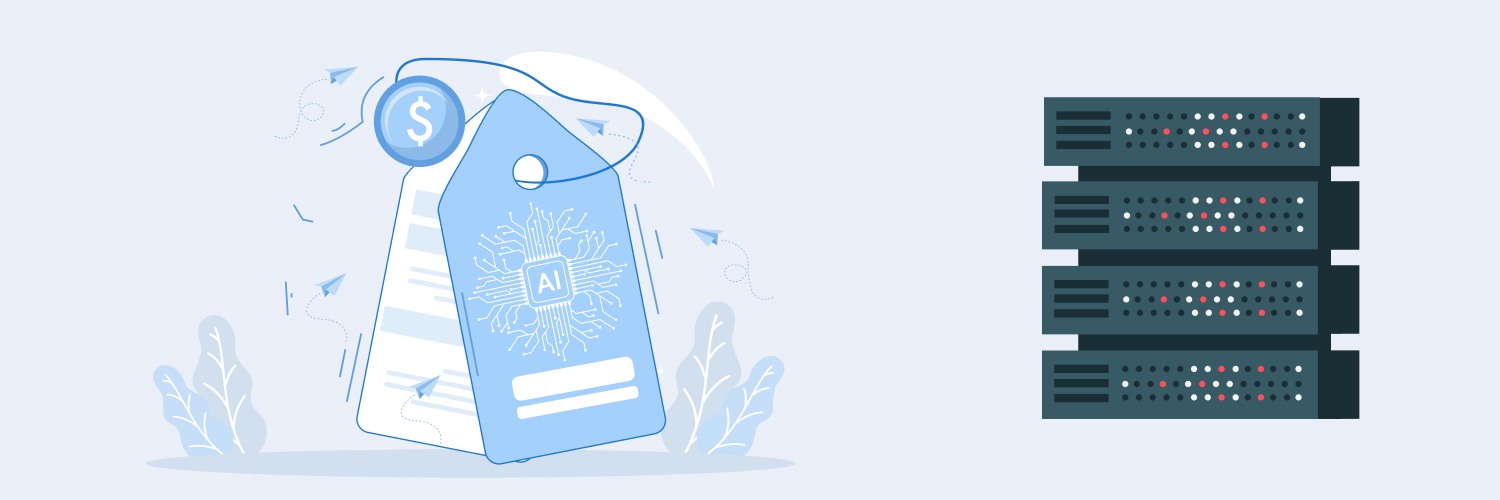What Is A Web Proxy And How Does It Keep Your Identity Private Online?
It’s easy to feel like there’s no privacy online anymore. Marketers and websites try to track everything you do, either to show you more targeted advertisements or sell your information to other people who want to sell you things. It can become overwhelming when you’re getting ads on your phone for something you searched on your laptop the day before.
However, you can take back your privacy more easily than you might assume. Web proxies allow you to shield your online identity and take control of your information. This article will answer “What is a web proxy?” explain why people use them, and how to choose the perfect proxy to protect your internet activity. You can use the table of contents to skip ahead if you’d like.
What Is a Web Proxy?

A web proxy is a proxy you use to surf the web. Great! But what does that mean?
A proxy is a shield between your home computer and the internet. One of the main ways websites track your behavior is by checking your IP address. While you can block and delete cookies websites try to leave on your computer, you can’t stop them from tracking IP addresses.
When the same IP address visits more than once, the site recognizes that it’s probably the same person. Even worse, your IP address is usually connected to your location, letting sites learn your approximate geographic location.
Proxies protect you from this kind of tracking. They place a web proxy IP address between you and websites, so the sites record the proxy address and not your own.
You can use rotating proxies to keep sites from building a profile on your behavior. Each proxy looks like a completely different visitor. As a result, you maintain your privacy and escape the constant advertising cycle.
Scrape at Scale With Chromium
Playwright-compatible. Self-hosted. Built for real infrastructure.

What is a web proxy address?
A web proxy address is the specific IP address between you and the internet. Your computer connects to a web proxy server when you use a proxy. Then it tells that server where you want to go and what you want to do.
The server is responsible for actually performing all of your online tasks. Meanwhile, websites only see the server’s IP address, not yours. The proxy IP address completely masks your actual location and hides your identity.
What is a web proxy server?
A web proxy server is just another computer that can communicate with yours. Proxy servers can be stored in massive data centers, or they can be another person’s computer.
Why Do People Use Web Browsing Proxy Services?

Proxies take some effort to set up, but they’re worth using because they allow you to accomplish things like:
- Protecting your privacy: Plenty of people don’t need a better reason than simply protecting their personal information. They think it’s invasive that companies track their browsing behavior and want to be able to visit different sites in private. Using a surf proxy lets you keep your personal information and location hidden from nosy corporations.
- Avoiding annoying advertisements: You’re also hamstringing annoying advertisers by protecting your privacy. You never have to worry about searching for something once and then getting ads about it for days. While you’ll still get ads, they’ll be random and completely untargeted, making them significantly less repetitive and annoying.
- Getting an unbiased view of different sites: When sites build a profile on your behavior, they typically use it to show you “personalized” suggestions. However, that may not always be what you want. If you want to see what’s being recommended to someone completely new, you can use a proxy to get an unfiltered view of different sites.
- Accessing geo-locked content: Some countries block certain websites or content entirely. Similarly, corporations may block you from viewing content in certain places because of competing copyright laws. This is known as “geo-locked” content, and many people think this kind of censorship is unfair. You can use a web proxy to access the content you can’t see in your home country.
Benefits of Using a Web Browsing Proxy

Those aren’t the only reasons to use a web browsing proxy. Proxies provide a wide range of benefits, including:
- Privacy: Websites aren’t the only places where your data is tracked. When you use a proxy to connect to the internet, you’re also preventing your ISP from monitoring your online behavior. As a result, you have the freedom to visit the sites you want.
- Security: When you use a proxy to browse websites, you’re also giving yourself an extra layer of protection. Any malicious website or ad that tries to attack your computer will first go after the proxy server. As a result, there are twice the security measures to protect your device from viruses and hackers.
- Bandwidth: A web browsing proxy can even help you reduce the bandwidth you use. Good proxy servers work to compress traffic to ensure you get the fastest possible internet experience. As a result, your bandwidth use will often be lower than if you visited a site directly. This is especially important if your internet plan has you pay based on how much bandwidth you use.
Choosing the right web browsing proxy service makes all the difference when it comes to receiving these benefits. With Rayobyte proxies, you can trust that you’re getting secure proxies with guaranteed bandwidth and privacy. You can also relax knowing that all the proxies from Rayobyte are ethically sourced. Regardless of why you want to use a surf proxy, Rayobyte offers the best proxies for the job.
Scrape at Scale With Chromium
Playwright-compatible. Self-hosted. Built for real infrastructure.

How To Use a Web Proxy

It’s easy to learn how to use web proxy addresses. It’s as simple as changing a few settings on your computer and telling it where to find the proxy.
On Windows, you can set up a proxy in just a few clicks. In Windows 10, go to Settings, then Network Proxy. Here, you can input the proxy address and the port it’s supposed to use. Your proxy provider will give you this information, and you’ll also receive a username and password if the provider is security-focused. Input that information, then click Save. That’s all it takes to get a proxy set up!
Once you’ve done that, using a proxy is exactly like browsing the internet normally. Your computer and the proxy server will handle all of the complicated parts behind the scenes. With the correct proxy, you won’t even notice a delay.
What Proxy Should I Use for Web Browsing?
There are three basic kinds of proxies you can use to browse the internet. Depending on what you need, you can use data center, ISP, or residential proxies.
Data center proxies are the cheapest. They’re hosted in data centers, so they’re inexpensive but easy to identify since they have no ISP connection. They’re perfect for efficient and high-speed web scraping, but they’re not ideal for general web browsing. Some sites ban data center proxies outright to protect themselves, so you might not be able to make purchases or log in to specific sites.
The next kind of surf proxy you can use is an ISP proxy. These proxies are also hosted in data centers, but they’re connected to major ISPs, internet service providers, so they look more realistic. They’re great for keeping your privacy more secure because they cost just a little more than a data center proxy but are harder to block.
The final and often best web browsing proxy is the residential proxy. This is a proxy connected to an actual home address somewhere in the world. They’re the hardest to identify as a proxy because they use a real person’s IP address. They’re the biggest investment, but they’re also the best at protecting your identity from advertisers and other invasive organizations online.
Rayobyte offers all three kinds of proxies. No matter what you need from your web surfing experience, you can find high-quality, secure proxies to protect your online identity with Rayobyte.
Final Thoughts

Advertisers have no reason to care about or protect your privacy. If you want to protect your identity and behavior online, it’s up to you. Now that you can answer “What is a web proxy?” you can start making life harder for advertisers today. The excellent proxies available from Rayobyte will help you maintain your privacy and let you browse the web in peace.
The information contained within this article, including information posted by official staff, guest-submitted material, message board postings, or other third-party material is presented solely for the purposes of education and furtherance of the knowledge of the reader. All trademarks used in this publication are hereby acknowledged as the property of their respective owners.




